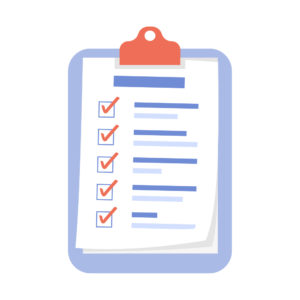The Ultimate Guide to Developing a Self-Care Checklist
Self-care is more than just a buzzword. It’s an essential component of living a healthy and fulfilling life. However, making time for yourself can be challenging, especially when leading a busy life. This is where a self-care checklist comes in. This guide will walk you through creating a self-care checklist that works for you.
Assess Your Needs
The first step in creating a self-care checklist is to assess your needs. Take some time to think about what makes you happy, calm, and fulfilled. Maybe it’s reading a book, taking a walk, or practising yoga. Everyone has different needs, so it’s essential to identify what works best for you. Make a list of activities that make you feel good and prioritise them.


Determine Your Availability
Once you’ve identified your self-care needs, the next step is to determine your availability. When can you realistically make time for these activities? Maybe it’s waking up 30 minutes earlier in the morning, taking a lunch break, or winding down at night. Whatever works best for you, schedule it in your calendar like you would any other appointment.
Make a Plan
Now that you’ve identified your needs and availability, it’s time to make a plan. Creating a personal development plan is an excellent way to organise your self-care activities. Start by listing activities you want to incorporate into your routine, then divide them into daily, weekly, and monthly tasks. This way, you can ensure you take care of yourself consistently.
Prioritise Self-Care
It’s essential to prioritise self-care, just like any other important task. Getting caught up in work or other responsibilities is easy, but taking care of yourself should be a top priority. Remember, you can’t pour from an empty cup. Take care of yourself first to be your best self for others.
Hold Yourself Accountable
Holding yourself accountable is vital to making your self-care checklist work. Check in with yourself regularly and evaluate if you are keeping up with your routine. If you find yourself falling behind, don’t beat yourself up. Instead, re-evaluate your plan and adjust it to fit your needs better. Remember, self-care is a journey; finding what works for you takes time.


Tips for Making Your Self-Care Checklist Work
Here are a few tips to help make your self-care checklist work for you:
- Be realistic with your time commitments
- Start small and gradually add more activities to your routine
- Don’t be afraid to try new activities
- Evaluate your plan regularly and adjust it as needed
- Don’t be too hard on yourself if you slip up
Importance of Self-Care Checklist in Personal Development
Having a self-care checklist is not just about taking care of your physical and මානසික සුවය; it can also significantly impact your personal development. You can develop self-awareness and self-confidence by making time for yourself and engaging in activities that make you happy and fulfilled. When you prioritise your own needs, you learn to value yourself and your well-being, which can lead to more significant personal growth. Caring for yourself can boost your creativity and productivity, helping you achieve your personal and professional goals. With a self-care checklist, you can make self-care a regular part of your routine, which can positively impact your overall personal development.
n conclusion, a self-care checklist is an excellent tool for prioritising your needs and well-being. By assessing your needs, determining your availability, making a plan, prioritising self-care, and holding yourself accountable, you can develop a self-care checklist that works for you. Don’t be afraid to try new activities and adjust your plan as needed. With these steps, you’ll be on your way to a more balanced and fulfilling lifestyle.
To know more ways to improve your self-care journey, speak to a general practitioner via oDoc today!
Sources
- WebMD
- Mayo Clinic
Similar Articles...

Let’s talk flu, its prevention and home remedies.
Boo-ger season is here! Let’s begin by defining flu (short term for influenza) because it’s usually misunderstood as fever or cold. Flu is a common

Menopause Brain Fog is real: A Simple Guide with Symptoms and Treatment
Menopause Brain Fog is real: A Simple Guide with Symptoms and Treatment Women in their 40s and 50s who are just entering the end of

How to Keep Work Stress from Taking Over Your Life
How to Keep Work Stress from Taking Over Your Life In today’s fast-paced and competitive world, work stress has become an all-too-common problem that affects



